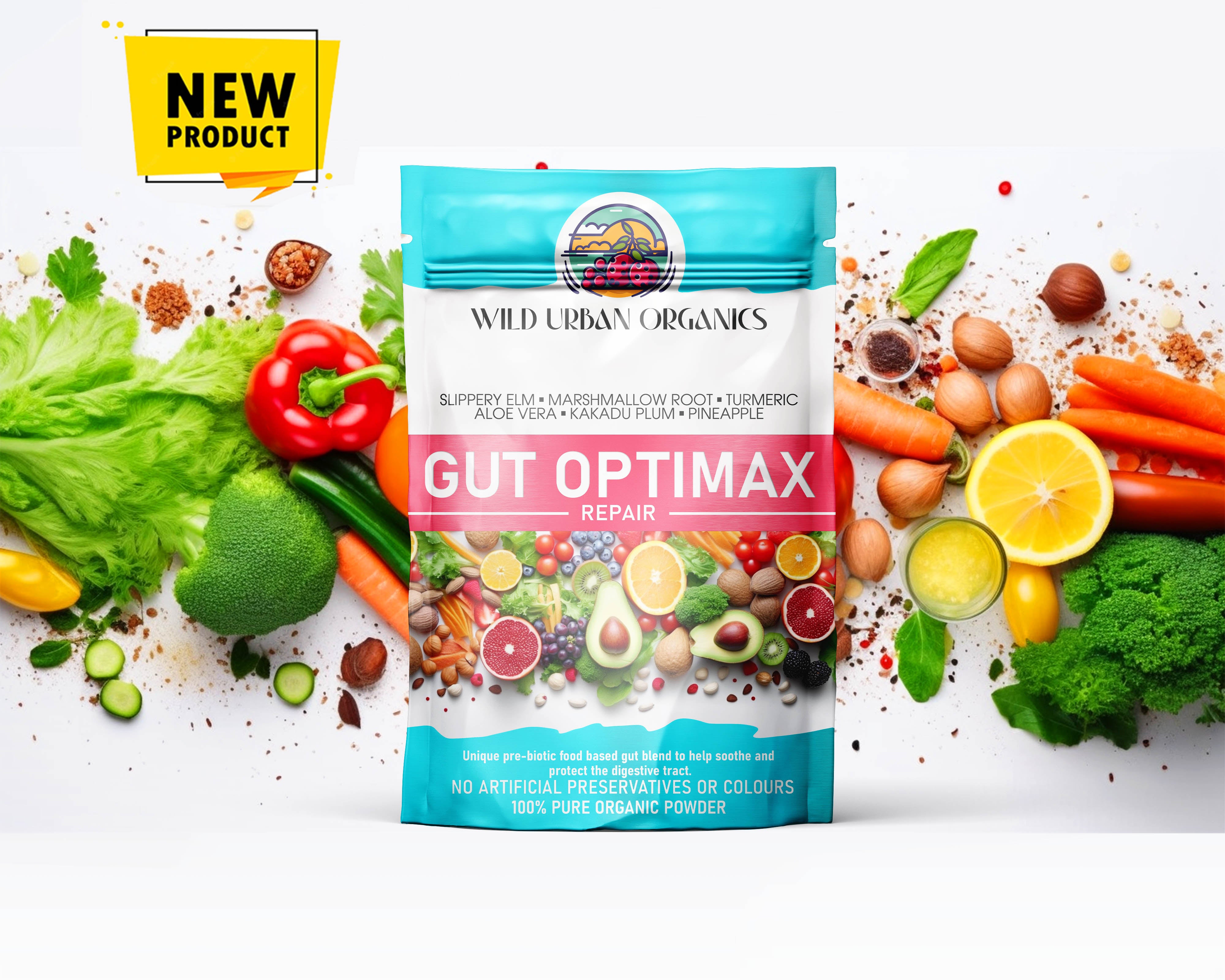Key Takeaways
| What are prebiotics? | Non-digestible fibers that feed good gut bacteria |
|---|---|
| What are probiotics? | Live bacteria that replenish gut flora |
| Gut health benefits of prebiotics? | Promote good bacteria growth, improve digestion, boost immunity |
| Gut health benefits of probiotics? | Reduce diarrhea, ease constipation, alleviate inflammatory bowel disease (IBD) symptoms |
| Best foods for gut health? | Fruits, vegetables, legumes, whole grains |

As a naturopath with an understanding of the gut microbiome, we will look into the world of prebiotics and probiotics. These dietary components play a critical role in maintaining a healthy gut, which is instrumental for overall well-being.
Demystifying Prebiotics and Probiotics
-
Prebiotics: Imagine prebiotics as the fertilizer for your gut garden. These non-digestible fibers, found abundantly in fruits, vegetables, and whole grains, act as a food source for the beneficial bacteria residing in your gut. By nourishing these good bacteria, prebiotics promote their growth and activity, leading to a thriving gut microbiome.
-
Probiotics: Think of probiotics as friendly microorganisms, live bacteria that directly replenish the good bacteria in your gut flora. Probiotics are most commonly found in fermented foods like yogurt, kimchi, sauerkraut, and kefir. They can also be taken as supplements.
The Powerhouse Duo for Gut Health
While prebiotics and probiotics have distinct roles, their synergy is key to maintaining a healthy gut.
- Prebiotics: By providing sustenance for good bacteria, prebiotics:
- Support healthy digestion by aiding in the breakdown of food particles.
- Enhance immune function by stimulating the production of immune cells in the gut.
- May help reduce the risk of certain gut-related conditions like irritable bowel syndrome (IBS).
- Probiotics: By introducing live bacteria directly, probiotics can:
- Ease symptoms of diarrhea, constipation, and bloating.
- Offer relief for inflammatory bowel disease (IBD) by restoring balance to the gut microbiome.
- Potentially contribute to improved mental health by influencing the gut-brain connection.

A Healthier You: Gut-Friendly Food Choices
Now that you understand the significance of prebiotics and probiotics, let's explore how to incorporate them into your diet:
- Prebiotic Powerhouse Foods:
- Fruits: Apples, bananas, berries (especially blueberries)
- Vegetables: Artichokes, asparagus, onions, garlic
- Legumes: Lentils, chickpeas, black beans
- Whole Grains: Oats, brown rice, quinoa
- Probiotic-Rich Foods:
- Yogurt (look for varieties with live and active cultures)
- Kimchi
- Sauerkraut
- Kefir
- Kombucha (choose varieties with minimal added sugar)
Gut Health Supplements
If you're considering gut health supplements, consulting with a naturopathic doctor is recommended. They can help you choose the right prebiotic or probiotic strain based on your individual needs. Here's a quick breakdown:
- Prebiotic Supplements: Often come in powder form containing various fiber sources like inulin or fructooligosaccharides (FOS).
-
Probiotic Supplements: Available in capsule, powder, or chewable form, containing different strains of bacteria like Lactobacillus or Bifidobacterium.

Building a Strong Gut: Frequently Asked Questions (FAQs)
1. How much gut health improvement can I expect?
Gut health improvement is a gradual process. While some individuals experience noticeable relief from digestive issues within weeks of incorporating prebiotics and probiotics, for others, the benefits accumulate over time. Factors like your baseline gut health, diet, and lifestyle all influence the pace of improvement.
2. Are there any side effects associated with prebiotics and probiotics?
Prebiotics are generally well-tolerated, but increasing your fiber intake too quickly can cause bloating and gas. Introduce them gradually and increase your water intake to help mitigate these effects. Probiotics are also generally safe, but some people may experience mild digestive discomfort initially. If symptoms persist, discontinue use and consult your doctor.
3. What are some additional tips for promoting gut health?
-
Manage stress: Chronic stress disrupts the gut microbiome. Practice relaxation techniques like yoga or meditation to manage stress effectively.
-
Prioritize sleep: Aim for 7-8 hours of quality sleep each night. Adequate sleep allows your body to repair and restore itself, including your gut.
-
Limit processed foods: Processed foods often contain refined sugars, unhealthy fats, and artificial ingredients, which can harm gut bacteria.
-
Stay hydrated: Drinking plenty of water keeps your digestive system functioning smoothly and promotes the growth of good bacteria.
-
Consider fermented foods: Introduce fermented foods like kimchi, sauerkraut, and kefir gradually to your diet for an extra boost of probiotics.
4. When should I see a naturopath for gut health concerns?
If you experience persistent digestive issues like chronic diarrhea, constipation, or abdominal pain, consult a naturopath. They can assess your individual needs and create a personalized plan to address your gut health concerns.

Unleash the Power Within: Supercharge Your Gut Health with Food!
Do you ever feel sluggish, bloated, or just not quite yourself? It might be time to listen to your gut! Our gut microbiome, a complex ecosystem of trillions of bacteria, plays a crucial role in everything from digestion and immunity to mood and brain function.

Expert Insights: Naturopathic Perspectives on Prebiotics vs. Probiotics
In this informative guide, we'll explore the nuances of prebiotics and probiotics through the lens of naturopathic medicine. We'll unpack their unique functions, look at their gut health benefits, and provide insights on incorporating them into your diet.
Remember: This information is intended for educational purposes only and should not be construed as medical advice. Always consult with your healthcare professional before making changes to your diet or supplement regimen.
By embracing a diet rich in prebiotic and probiotic foods, and potentially incorporating targeted supplements under the guidance of a healthcare professional, you can empower your gut health and unlock a cascade of positive effects on your overall well-being.


